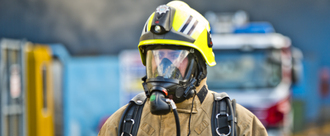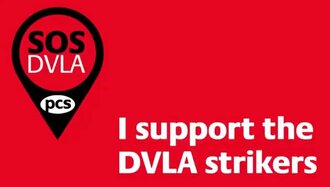-
Warburton's - possibly sacking staff for protecting their Health and Safety?Everyone has the right to a safe environment at their place of work. Drivers who are lone, mobile workers, whose environment changes regularly and sometimes rapidly, should have the confidence to adapt and have the support of their employer in making those decisions233 of 300 SignaturesCreated by Joanna Menderowicz-Richards

-
REINSTATE the MURPHY 4Four Unite members, including 1 shop steward, have been sacked by Murphy Intl for what Unite believes is legitimate trade union activities. Between them, they have a combined tenure of50 years. We are facing the worst economic crisis in living human history, with the financial clout that Murphy Intl has to force 4 families to face such uncertainty is wholly unacceptable. Please show your support and demand that Murphy Intl immediately REINSTATE THE MURPHY 4.452 of 500 SignaturesCreated by Unite the Union
-
Save Hackney Library Services - stop the cuts!Help protect staff jobs and our libraries for current & future generations. We need at least 750 signatures from people who work, live or study in Hackney to be considered by the full council at Hackney Town Hall in November!3,206 of 4,000 SignaturesCreated by Hackney UNISON branch

-
Stop the use of ‘Ghost Clinics’ in eyecareThe practice of ghost clinics or double-booking patient clinics for commercial gain risks both patients and clinicians in their prospective roles. Patients can be put at risk from a rushed eye examination that may miss vital signs of an eye condition or overall eye health. Practitioners are put in a compromising position between carrying out their employer's request and/or breaching GOC standards which could lead to them losing their registration and be unable to practice. The application of ghost clinics is often aimed at those with less employment rights like new starters, newly qualified or locums (self-employed), who feel pressurised to accept the practice. Many practitioners are left feeling stressed, missing their rest breaks and working additional hours just to cover the double appointments booked whilst feeling they are letting patients down. This also affects everyone who rely on companies within the optical sector to look after their eye health, so help support those in the sector trying to eradicate this practice and also for the benefit of your own wider health by signing this petition.1,139 of 2,000 SignaturesCreated by Prospect Union
-
Save Phoenix House! Keep asbestos support in BarrowMost people using the service are terminally ill. They deserve a specialist, knowledgeable team to manage their claims. The closure risks long delays and a lack of specialist knowledge to support claims. • 40+ jobs are at risk leaving staff in fear of redundancy with little chance of redeployment in the local area. • Over 1000 combined years of experience helping the growing number of victims of asbestos-related lung diseases and other industrial disease will be lost. • Excellent working relationships with asbestos support groups, unions and charities will end. • Sufferers of terminal illnesses and their families will have to wait longer to receive payment and peace of mind at the most difficult of times. Industrial disease continues to have a devastating effect on workers and families across the country. Britain has the highest rates of asbestos cancer in the world, and Barrow has the highest rates in Britain. The thousands of people suffering work-related illnesses every year deserve a dedicated service. Save Phoenix House! This campaign is just one concerning 50 DWP sites facing closure, for more information see www.pcs.org.uk/campaigns/campaign-dwp-jobs-services-communities1,430 of 2,000 SignaturesCreated by Shelly Asquith
-
For the sacked! Fair Ferries campaign to end exploitation at seaWe need a new deal for all workers. We demand stronger collective bargaining rights and an end to exploitative employment practices like fire and rehire.1,545 of 2,000 SignaturesCreated by Helen Kelly
-
Defend firefighters' breathing apparatus safety proceduresFirefighters’ BA is crucial for tackling fires safely in buildings, providing them with protection from death, injury and disease when working in oxygen-deficient, toxic and hazardous atmospheres. Firefighters attending high-rise fires must wear their BA and be under air before moving beyond the bridgehead - a safe-air environment – to tackle the fire and rescue anyone inside the building safely. New policy guidance issued by the NFCC would permit firefighters to be sent beyond the bridgehead without being supplied with safe air. If firefighters are not using their BA to supply safe air when they pass beyond the bridgehead, it provides them with no protection at all. This new procedure would: - Expose firefighters to toxic smoke and other harmful substances that can cause death, injury, cancer & other diseases. - Make dealing with any equipment faults extremely difficult. - Make calculating how much air a firefighter needs to get out safely impossible. If a firefighter runs out of air or gets in distress, they could be beyond the point of rescue. Firefighters’ lives, and public safety, are at risk if this policy is put in place. Dead and injured firefighters can’t rescue anybody.12,162 of 15,000 SignaturesCreated by Fire Brigades Union
-
Don't undermine our right to strikeJust a few months ago Grant Shapps slammed P&O for replacing experienced workers with agency staff. But now he’s proposing to do the same on railways and other key sectors. Ministers seem determined to reduce workers’ bargaining power and to make it harder for working people to win fair pay and conditions. It would put these workers in an appalling situation, worsen disputes and poison industrial relations. This is about respect, for our work, skill and experience and we can only win that dignity and respect through the power of standing together with other union members. Every time workers go out on strike, we remind them of how important we really are and it terrifies them. Add your name and tell the government to abandon this dangerous plan.26,073 of 30,000 Signatures
-
Give Britain’s railways proper funding now!Millions of us across the country rely on train services every day to get to work, go to school, and as a greener option for travelling across the country. But the UK government is cutting Network Rail’s annual expenditure by £100 million. More than 2,600 dedicated railway workers will lose their jobs, their livelihoods and careers. That means fewer staff to undertake vital maintenance work, fewer inspectors on board trains, fewer route controllers to keep services safe and functional. It’s impossible to make those cuts without cutting corners on safety. We don’t want to see commuters packed like sardines into unsafe trains. We don’t want cuts that could make accidents more likely and increase the possibility of trains flying off the tracks. We deserve safe, reliable and affordable and well maintained trains for all. The UK government must recognise the world's most successful railways are in public ownership, and backed by sustainable government funding. We demand a better vision for the future of Britain’s rail. We want the UK government to put safety and livelihoods first. Sign the petition to stop this jobs disaster and the largest cuts to public rail services in a generation.22 of 100 Signatures
-
Keep heritage safe, extend the mask rulesThe heritage and wider cultural sector was hit very hard by the coronavirus pandemic. Thousands of jobs were lost as vital income streams dried up. As museums, galleries and other spaces have been able to reopen to the public and tourism has begun to recover there have been some green shoots of recovery. However this can only happen with both a safe workforce and visitors that feel confident about attending Covid-secure venues. This is being put at risk by the failure of the UK government to mandate the wearing of facemasks for visitors to indoor heritage venues in England. Although masks will only be one part of a comprehensive strategy to address the risks posed by Covid the World Health Organisations recommends them as an important part of this comprehensive approach.225 of 300 SignaturesCreated by Prospect Union

-
Keep DVLA staff safePCS members have been in dispute with DVLA management and the Department for Transport (DfT) since January over covid safety in the workplace. With the highest numbers of workplace cases, management were slow to act and showed scant disregard for members health. After 8 days of strike action PCS negotiated a deal to end the dispute and put in place clear safeguards for those in work. At the 11th hour the draft agreement was scrapped by management without a clear explanation why. Further strike action is now underway. We believe government ministers stopped the DVLA management signing the deal. We need to apply pressure to the Secretary of State to settle this dispute. Please sign the email to him. It’s your right to be heard and only pressure from union members and our friends and family will work now.1,777 of 2,000 Signatures
-
Treat Long Covid as a DisabilityLatest Government figures revealed a staggering 385,000 people have been living with symptoms of long Covid for a year or more. And spiralling infection rates mean many more people are likely to contract long Covid. Symptoms include fatigue, brain fog and shortness of breath, and it’s more common in key workers, women and those living in the most deprived areas. Our research reviled wide spread discrimination and disbelief at work 1 in 20 people with long covid have been forced out of their jobs. This is not acceptable. We must stand in solidarity with everyone who has long Covid. We demand the Government urgently address the discrimination people with long Covid face.1,990 of 2,000 Signatures









.jpg)


.png)